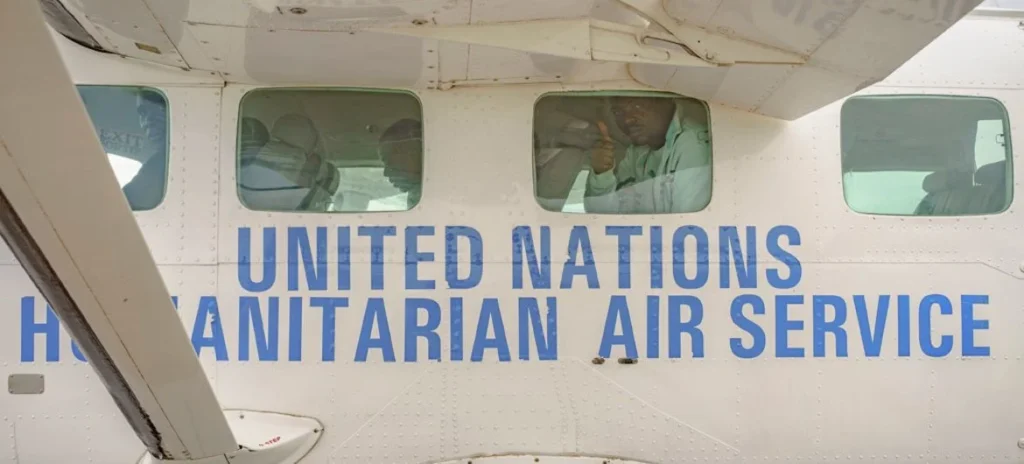Conflict-ravaged Nigeria has lost its lifeline. In a dramatic turn of events, the United Nations Humanitarian Air Service (UNHAS), operated by the World Food Programme (WFP)—has suspended its fixed-wing flights to northeastern Nigeria due to a critical $5.4 million funding shortfall.
The suspension brings humanitarian access to a screeching halt, cutting off aid workers and vital supplies from Borno and Yobe—the epicenters of the insurgency.
What Just Happened?
* UNHAS flights, essential for delivering food, medicine, and personnel, were halted last week after nearly a decade of uninterrupted operations.
* UN spokesperson Stéphane Dujarric sounded the alarm, highlighting that without this $5.4 million, regional relief operations could collapse.
* WFP’s regional director, Margot van der Velden, warned that ongoing aid could collapse by July if funding remains elusive—risking aid access to over 1.3 million people.
The Toll on Nigeria’s Northeast
Northeastern Nigeria, already battered by a 15-year insurgency, now faces a scenario where food supplies and therapeutic aid are dwindling rapidly.
Also Read: CNG: FG Confirms No Subsidy As Nigerians Face Fresh Price Hike
WFP has already shut down 150 nutrition centers during the current lean season, leaving children and their families dangerously exposed.
Political Fallout and Controversy
Many argue this suspension is yet another sign of global neglect toward Africa’s most vulnerable. Nigeria’s own government—though a key domestic financier—lacks the bandwidth to replace the missing international support.
The optics of this break in aid amid escalating hunger and violence have sparked outrage among civil society and international observers.
The Road Ahead: Who Will Shield the Vulnerable?
Will global donors heed this emergency? What role will the Nigerian government play in filling the gap? Without immediate action, this isn’t just a temporary setback—it’s a humanitarian catastrophe in the making.







